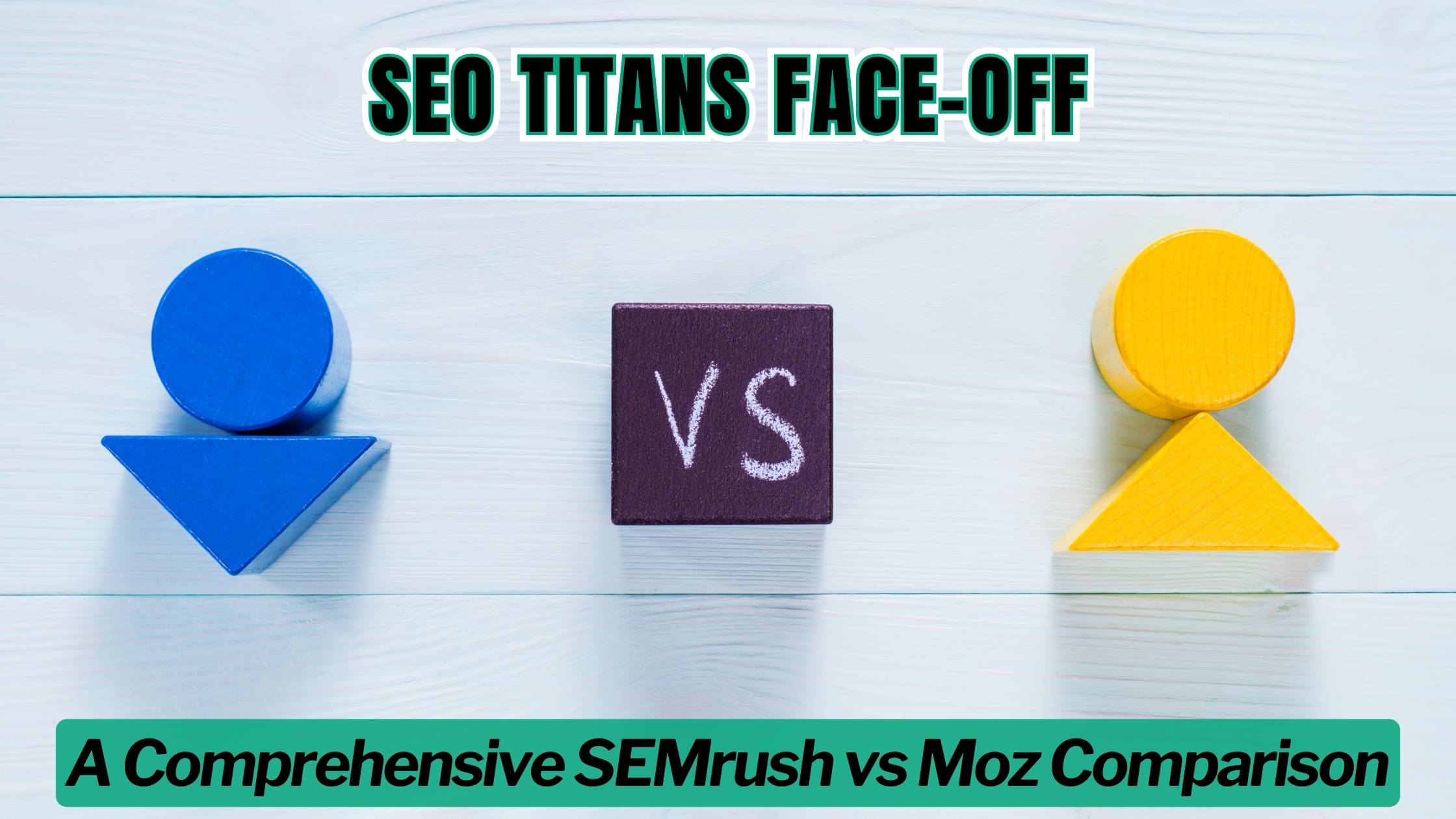SEO Titans Face-Off: A Comprehensive SEMrush vs Moz Comparison
- Conversational Marketing Software SEO Software Affiliate Marketing Software Marketing Tools


SEO Titans Face-Off: A Comprehensive SEMrush vs Moz Comparison
In the competitive landscape of SEO tools, SEMrush and Moz stand out as two titans, each offering a wealth of features designed to enhance digital marketing strategies. Marketers often find themselves torn between these two industry-leading platforms, unsure of which one best suits their needs. In this comprehensive comparison, we’ll delve into the key differences and similarities between SEMrush and Moz, helping you make an informed decision about which tool reigns supreme in your SEO arsenal.
SEMrush vs Moz: Feature Comparison
1. Keyword Research
SEMrush excels in keyword research, providing users with comprehensive insights into search volume, keyword difficulty, and competitor analysis. Its keyword database is extensive, allowing marketers to uncover valuable opportunities for ranking improvement. On the other hand, Moz offers robust keyword research tools, with features such as keyword explorer and SERP analysis, enabling users to identify high-potential keywords and track their performance over time.
2. Site Auditing and Optimization
Both SEMrush and Moz offer site auditing functionalities to help users identify technical issues, improve site health, and enhance overall performance. SEMrush’s Site Audit tool provides detailed reports on site errors, warnings, and recommendations for optimization. Similarly, Moz’s Site Crawl feature offers insights into crawlability issues, duplicate content, and on-page SEO factors, empowering users to make data-driven decisions to improve site visibility.
3. Backlink Analysis
SEMrush and Moz both offer powerful backlink analysis tools to help users understand their link profile, identify opportunities for link building, and monitor competitor activity. SEMrush’s Backlink Analytics provides in-depth insights into backlink authority, anchor text distribution, and referring domains. Meanwhile, Moz’s Link Explorer offers similar features, including domain authority, spam score, and link tracking capabilities.
4. Rank Tracking and Reporting
SEMrush and Moz enable users to track keyword rankings and generate detailed reports to measure the success of their SEO efforts. SEMrush’s Position Tracking tool allows users to monitor keyword positions in search engine results pages (SERPs) and compare performance against competitors. Similarly, Moz’s Rank Tracker provides daily updates on keyword rankings, SERP features, and visibility metrics, helping users track progress and identify areas for improvement.
5. Local SEO
SEMrush and Moz offer features specifically tailored to local SEO, allowing users to optimize their online presence for location-based searches. SEMrush’s Local SEO tool provides insights into local keyword rankings, citation consistency, and online reputation management. Likewise, Moz’s Local Listings tool helps users manage business listings, monitor online reviews, and improve local search visibility.
Relevant SaaS Products for Digital Marketers
As digital marketers navigate the complexities of SEO tool selection, several additional SaaS products complement SEMrush and Moz, enhancing overall marketing effectiveness:
1. Subscribed.FYI
Subscribed.FYI offers a centralized platform for managing SaaS subscriptions, providing users with insights, comparisons, and deals on a wide range of tools, including SEMrush and Moz. By leveraging Subscribed.FYI, marketers can streamline their subscription stack and access valuable resources to optimize their digital marketing efforts.
2. Ahrefs
Ahrefs is a comprehensive SEO toolset that offers features such as keyword research, backlink analysis, and site auditing. Marketers can use Ahrefs to uncover valuable insights into their competitors’ strategies, identify high-potential keywords, and track their website’s performance in search engine results.
3. SE Ranking
SE Ranking provides a suite of tools for SEO, PPC, and social media management, offering features such as keyword tracking, competitor analysis, and website audit. Marketers can use SE Ranking to improve their search engine rankings, track keyword positions, and monitor their website’s performance across various channels.
4. Google Analytics
Google Analytics is a free web analytics tool that provides insights into website traffic, user behavior, and conversion metrics. Marketers can use Google Analytics to track the performance of their digital marketing campaigns, measure ROI, and identify areas for improvement.
5. SpyFu
SpyFu offers competitive intelligence tools that allow marketers to spy on their competitors’ SEO and PPC campaigns. With features such as keyword research, competitor analysis, and domain overview, SpyFu helps marketers uncover valuable insights and gain a competitive edge in their digital marketing efforts.
Conclusion
In conclusion, SEMrush and Moz are both powerful SEO tools that offer a wide range of features to help marketers improve their online visibility and drive organic traffic. While SEMrush excels in keyword research and competitor analysis, Moz shines in site auditing and backlink analysis. Ultimately, the choice between SEMrush and Moz depends on your specific needs and preferences, as well as the unique requirements of your digital marketing strategy.
As you weigh the pros and cons of SEMrush vs Moz, consider how Subscribed.FYI can enhance your SEO toolkit and provide valuable insights into a wide range of SaaS tools. With exclusive member-only deals and comprehensive resources, Subscribed.FYI empowers marketers to optimize their digital marketing efforts and achieve measurable results.
Sign up for free today and unlock the power of Subscribed.FYI to supercharge your SEO strategy.
Relevant Links:








